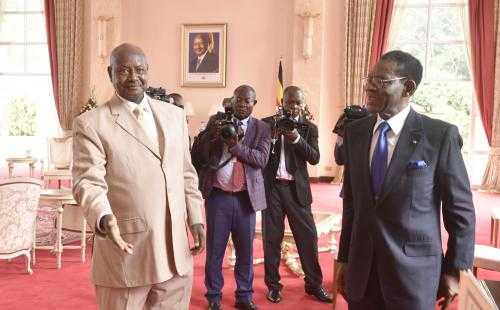Africa speaks of good governance and women’s right to land

This urgency is the focus that motivated the interventions of many African leaders at the Fifth Conference on Land Policy in Africa, which will be held from 21 to 24 November at the headquarters of the African Union.
Uganda’s Minister of Lands, Housing and Urban Development, Judith Nabakoba, has called for good land management policies that promote women’s rights to natural resources to achieve equitable and sustainable outcomes for all.
Nabakoba explained that his country “understands the relationship between land, trade and the well-being of the people. “Effective land governance and management is the cornerstone of sustainable social justice.” In this sense, he added that the policies being formulated must be visionary and integrate climate change and reform of agricultural justice systems.
The African Union Commissioner for Agriculture, Rural Development, Blue Economy and Sustainable Environment, Josefa Sako, noted that since the last conference on the topic, there has been significant progress in regional policies in all member states.
“Two years ago, we met to address the challenges hindering sustainable land management, and I am pleased to report that there is notable momentum in implementing policies to promote sustainable land management practices,” Sako noted.
She mentioned as an important area for this progress the advancement of women’s land rights, in line with the African Union’s agenda, through specific policy interventions, legal reforms and awareness campaigns that have raised the status of this sector of the population on the continent.

He highlighted efforts by Tanzania, the Democratic Republic of the Congo, Guinea and Malawi to evaluate these rights in regulations and laws, as well as adopt measures to address the gaps identified.
The Commissioner noted that the African Center for Land Policy has begun the process of developing a continental strategy to integrate gender equality into national land sectors.
Strong land administration systems are essential to facilitate the lives of youth, women, communities and the private sector, said Acting Director of Finance and Private Sector Development at the United Nations Economic Commission for Africa (ECA), Robert Lessing.
“If African governments implement good land policies and governance, they will support agribusiness parks, infrastructure and renewable energy, all of which are essential components of industrialization and trade,” Lessing said.
Advocate for the use of inclusive digital technologies to support land and trade policy-making processes through data-driven decision-making. “They can identify opportunities for reform, job creation, mitigation and adaptation to climate change and food needs in Africa,” he stressed.
Canzimo Lewontin, Natural Resource Management Advisor at the African Development Bank, commented that managing land and regulating access and use allows for accelerating the implementation of the African Free Trade Area (AfCFTA) by contributing to commodity production and unlocking agriculture. Possible.
The latter will promote gender equality and balanced regional development in accordance with the African Union Agenda 2063, which requires governments to fully empower women in all areas, while enjoying equal social, political and economic rights, including ownership and inheritance of property, and signing, registering and managing contracts. Companies.
The Fifth Conference on Land Policy in Africa is organized by the African Union Commission, the African Development Bank and the Economic Commission for Africa under the theme of the African Political Organization 2023: “The Year of the African Continental Free Trade Area: Accelerating the implementation of the African Continental Free Trade Area.”
Memory/NMR

“Award-winning zombie scholar. Music practitioner. Food expert. Troublemaker.”







